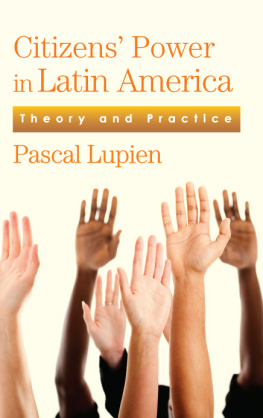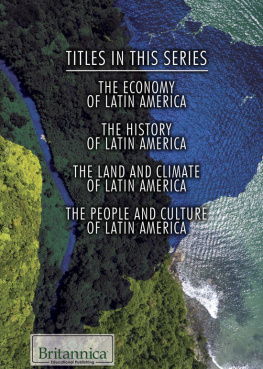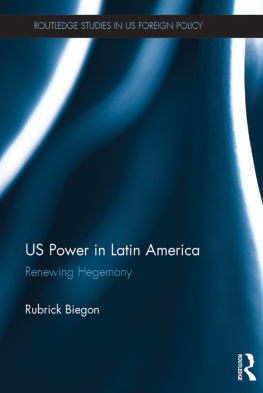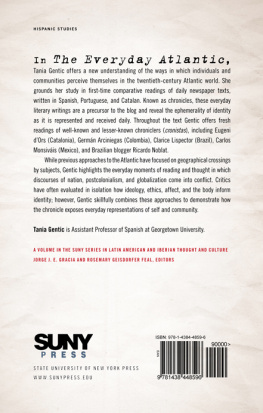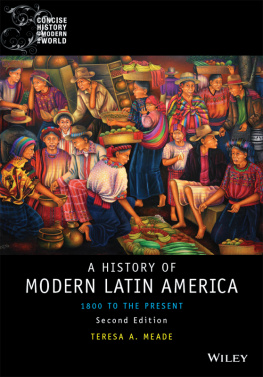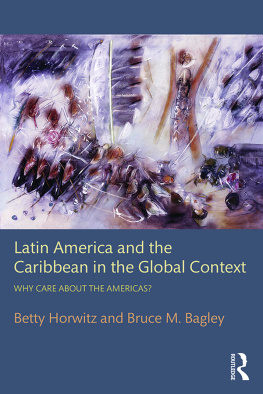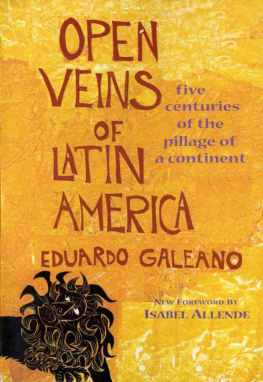Citizens Power in Latin America
Citizens Power in Latin America
Theory and Practice
Pascal Lupien
Published by State University of New York Press, Albany
2018 State University of New York
All rights reserved
Printed in the United States of America
No part of this book may be used or reproduced in any manner whatsoever without written permission. No part of this book may be stored in a retrieval system or transmitted in any form or by any means including electronic, electrostatic, magnetic tape, mechanical, photocopying, recording, or otherwise without the prior permission in writing of the publisher.
For information, contact State University of New York Press, Albany, NY
www.sunypress.edu
Library of Congress Cataloging-in-Publication Data
Names: Lupien, Pascal, author.
Title: Citizens power in Latin America : theory and practice / Pascal Lupien.
Description: Albany : State University of New York Press, 2018. | Includes bibliographical references and index.
Identifiers: LCCN 2017021781 (print) | LCCN 2017031377 (ebook) | ISBN 9781438469195 (ebook) | ISBN 9781438469171 (hardcover : alk. paper)
Subjects: LCSH: Political participationLatin America. | Citizens advisory committeesLatin America. | Political participationVenezuela. | Citizens advisory committeesVenezuela. | Political participationEcuador. | Citizens advisory committeesEcuador. | Political participationChile. | Citizens advisory committeesChile.
Classification: LCC JL966 (ebook) | LCC JL966 .L86 2018 (print) | DDC 323/.042098dc23
LC record available at https://lccn.loc.gov/2017021781
10 9 8 7 6 5 4 3 2 1
Contents
Tables
Acknowledgments
First and foremost, I would like to express my appreciation to Jordi Dez, Janine Clark, Leah Levac, and Kerry Preibisch for the time, patience, dedication, and advice they provided throughout the research and writing process. Their guidance was invaluable at all stages of the development of this research project. My sincere thanks also go to Tulia Falleti, Professor of Political Science at the University of Pennsylvania, for contributing her expertise and insightful questions to the final examination process. The knowledge, expertise, and high expectations of these academics have resulted in a stronger book. I must also thank a number of other scholars who have provided various forms of support and encouragement over the past five years: Candace Johnson, Gordana Yovanovich, Roberta Rice, Jorge Nef, Craig Johnson, Byron Sheldrick, David MacDonald, Adam Sneyd, Edward Koning, Tamara Small, and Rosario Gmez. I am also grateful to the staff of the Department of Political Science at the University of Guelph for their dedication and willingness to solve problems and address concerns. I would also like to thank my editor, Dr. Michael Rinella, the peer reviewers, and the staff at SUNY Press, particularly Eileen Nizer and Anne Valentine, for their attention to detail and invaluable feedback.
This research was carried out in three amazing countries: Venezuela, Chile, and Ecuador, my beloved adopted land that holds a special place in my heart. I am fortunate to have had the opportunity to meet so many fascinating, dynamic people who are dedicated to the improvement of democracy in their countries. I would like to express my deep gratitude to all those who offered their time and perspectives. For their help and the contacts they provided, a special thanks to Franklin Ramrez (FLACSO Ecuador); Maria Amelia Viteri (San Francisco University of Quito); Steve Ellner (Universidad de Oriente, Venezuela); Rossana Castiglioni (Universidad Diego Portales, Santiago); and Robert Funk (Institute of Public Affairs, University of Chile).
This book is dedicated to the people of Tarqui in Manta, Ecuador, one of the neighborhoods studied in this book. Many lives were lost or disrupted, and many homes and business were destroyed by an earthquake that devastated the Ecuadorian coast on April 16, 2016. I sincerely wish the people of Tarqui the best in rebuilding their community and their lives.
P ART I
P ARTICIPATORY D EMOCRACY IN T HEORY AND P RACTICE
Introduction
The Emergence of Democratic Institutional Innovation in Latin America
In the past decade, Latin America has witnessed an explosion of institutions designed to encourage and channel popular participation in decision-making. In neighborhoods and communities across the region, average citizens are experimenting with innovative ways of deepening democracy. Citizens who have never been politically active and people from traditionally marginalized groups are engaging in participatory processes that are having an impact on their communities. Some are building housing projects using local labor while others are repairing deteriorating infrastructure in their neighborhoods. Parents are having a say in remodeling their childrens schools and equipping them with sports facilities and kitchens. Domestic workers who must make the long daily trek from their low-income barrios to the homes of their employers have been involved in creating new bus routes that shorten their daily commutes.
These are a few of the more positive examples of how citizens who have been ignored by decision makers in the past are taking matters into their own hands through the new participatory architecture that is emerging in Latin America. Participatory mechanisms have flourished under left-wing governments that claim a strong ideological commitment to radical participatory democracy, while in other countries citizen participation is promoted as a pragmatic means of improving governance rather than as an alternative model of democratic politics. These developments have led some scholars to argue that the center of democratic innovation has moved from North to South and that we have a great deal to learn by studying these initiatives.
There is considerable variation, however, in terms of how participatory mechanisms function from one neighborhood to the next. In some cases, marginalized residents are achieving improved access to public goods and services and developing a stronger sense of political efficacy. They see a powerful link between citizen participation and more equitable outcomes than those provided by traditional representative institutions. In other cases, the picture is less promising. Residents do not feel empowered and continue to find themselves excluded from the political process. What explains these differences in outcomes? Why do some democratic innovations appear to succeed while others fail? Does the radical participatory democracy model implemented by administrations that seek to overturn traditional power structures provide more significant benefits than the more pragmatic experiments aimed at improving governance through limited citizen participation?
This book answers these questions by examining participatory mechanisms in three countries through the eyes of the women and men who devote their time and energy to improving their communities. Why are these participatory innovations important? Liberal democracy is facing a crisis of legitimacy around the world, and particularly in Latin America. According to the 2015 Latinobarometer report, only 39% of Latin Americans were satisfied with the quality of democracy in their country. Perhaps even more troublesome is the low level of support for democracy in Latin America, with nearly half of the regions citizens claiming that democracy is not necessarily the best form of government. Political institutions are failing to meet the aspirations of increasing numbers of citizens. The high level of public dissatisfaction with the current state of democracy has reignited the debate surrounding the most effective means of integrating popular participation into the policy process. Politicians, non-governmental organizations (NGOs), students of democracy and concerned citizens are thinking about innovative ways of deepening democracy. In order to engage in this discussion, we must develop a better understanding of the strengths and weaknesses of participatory mechanisms.


